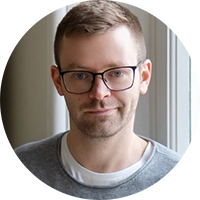This event is online only.
Join us for a meeting of the New York-Russia Public Policy Series, co-hosted by the Harriman Institute at Columbia University and the New York University Jordan Center for the Advanced Study of Russia.
Many polls suggest that the majority of Russians consistently approve of Russia’s war on Ukraine. However, various experts and activists have argued that polling in an authoritarian regime, especially during the war, may be unreliable. How much should we trust these surveys, and what evidence of Russians’ support of or opposition to the war do we have? At this panel, scholars of Russian public opinion will present their new findings on support for the invasion of Ukraine and Vladimir Putin’s regime, talk about how these attitudes changed since the start of Russia’s full-scale invasion, and discuss what we can and cannot learn from survey research in these circumstances.
This event is supported by a grant from Carnegie Corporation of New York.
Speakers
Grigore Pop-Eleches, Professor of Politics and International Affairs at the Princeton School of Public and International Affairs and Department of Politics; Co-Director of the Princeton Workshop on Post-Communist Politics
Timothy Frye, Marshall D. Shulman Professor of Post-Soviet Foreign Policy at Columbia University
Katerina Tertytchnaya, Associate Professor in Comparative Politics at the Department of Politics and International Relations; Tutorial Fellow at Brasenose College, University of Oxford
Maxim Alyukov, Leverhulme Early Career Postdoctoral Fellow at the Department of Russian and East European Studies at the University of Manchester; Research Associate at King’s Russia Institute at King’s College London; Researcher with the Public Sociology Laboratory
Moderated by:
Alexander Cooley, Claire Tow Professor of Political Science; Vice Provost for Research, Libraries and Academic Centers, Barnard College
Joshua Tucker, Director of the Jordan Center for the Advanced Study of Russia at New York University
Biographies
 Grigore Pop-Eleches is a Professor of Politics and International Affairs at the Princeton School of Public and International Affairs and the Politics Department at Princeton University. He is a co-director of the Princeton Workshop on Post-Communist Politics. His main current research interests are in comparative political behavior with a focus on authoritarian and post-authoritarian regimes (largely in Eastern Europe and the former Soviet Union). He has also worked on comparative and international political economy of Eastern Europe and Latin America, and on democratization and democratic backsliding, with a focus on the role of electoral behavior and political parties. His first book, entitled From Economic Crisis to Reform: IMF Programs in Latin America and Eastern Europe was published by Princeton University Press in February 2009. His second book, Communism’s Shadow: Historical Legacies and Contemporary Political Attitudes (joint with Joshua A. Tucker), was published in 2017 by Princeton University Press. His work has also appeared in a variety of academic journals, including The American Journal of Political Science, The Journal of Politics, World Politics, Comparative Political Studies, Comparative Politics, Quarterly Journal of Political Science, International Studies Quarterly, Journal of Democracy, Studies in Comparative International Development, and East European Politics
Grigore Pop-Eleches is a Professor of Politics and International Affairs at the Princeton School of Public and International Affairs and the Politics Department at Princeton University. He is a co-director of the Princeton Workshop on Post-Communist Politics. His main current research interests are in comparative political behavior with a focus on authoritarian and post-authoritarian regimes (largely in Eastern Europe and the former Soviet Union). He has also worked on comparative and international political economy of Eastern Europe and Latin America, and on democratization and democratic backsliding, with a focus on the role of electoral behavior and political parties. His first book, entitled From Economic Crisis to Reform: IMF Programs in Latin America and Eastern Europe was published by Princeton University Press in February 2009. His second book, Communism’s Shadow: Historical Legacies and Contemporary Political Attitudes (joint with Joshua A. Tucker), was published in 2017 by Princeton University Press. His work has also appeared in a variety of academic journals, including The American Journal of Political Science, The Journal of Politics, World Politics, Comparative Political Studies, Comparative Politics, Quarterly Journal of Political Science, International Studies Quarterly, Journal of Democracy, Studies in Comparative International Development, and East European Politics
 Timothy Frye is the Marshall D. Shulman Professor of Post-Soviet Foreign Policy at Columbia University. He is the author of Brokers and Bureaucrats: Building Markets in Russia, which won the 2001 Hewett Prize from the American Association for the Advancement of Slavic Studies, and Building States and Markets after Communism: The Perils of Polarized Democracy, which won a Best Book Prize from the APSA Comparative Democratization section in 2010; and Property Rights and Property Wrongs: How Power, Institutions, and Norms Shape Economic Conflict in Russia, which was published in 2017. His most recent book, Weak Strongman: The Limits of Power in Putin’s Russia, was published by Princeton University Press in April 2021.
Timothy Frye is the Marshall D. Shulman Professor of Post-Soviet Foreign Policy at Columbia University. He is the author of Brokers and Bureaucrats: Building Markets in Russia, which won the 2001 Hewett Prize from the American Association for the Advancement of Slavic Studies, and Building States and Markets after Communism: The Perils of Polarized Democracy, which won a Best Book Prize from the APSA Comparative Democratization section in 2010; and Property Rights and Property Wrongs: How Power, Institutions, and Norms Shape Economic Conflict in Russia, which was published in 2017. His most recent book, Weak Strongman: The Limits of Power in Putin’s Russia, was published by Princeton University Press in April 2021.
 Katerina Tertytchnaya is an Associate Professor in Comparative Politics at the Department of Politics and International Relations and a Tutorial Fellow at Brasenose College, University of Oxford. Her research interests include authoritarian politics, public opinion, political behavior, protest, and post-communist politics. Drawing on evidence from Russia, she studies how non-democratic incumbents use nonviolent repression and propaganda to lower the costs of staying in power, and her other projects examine the origins of mass support for authoritarian leaders. Dr. Tertytchnaya’s work has been published in the American Political Science Review, World Politics, and the Journal of Politics, among others. She is the principal investigator of the project “Nonviolent Repression in Electoral Autocracies” funded by the UKRI Economic and Social Research Council. Before joining the University of Oxford, she was an Associate Professor of Comparative Politics at University College London. She holds a DPhil in Politics from the University of Oxford.
Katerina Tertytchnaya is an Associate Professor in Comparative Politics at the Department of Politics and International Relations and a Tutorial Fellow at Brasenose College, University of Oxford. Her research interests include authoritarian politics, public opinion, political behavior, protest, and post-communist politics. Drawing on evidence from Russia, she studies how non-democratic incumbents use nonviolent repression and propaganda to lower the costs of staying in power, and her other projects examine the origins of mass support for authoritarian leaders. Dr. Tertytchnaya’s work has been published in the American Political Science Review, World Politics, and the Journal of Politics, among others. She is the principal investigator of the project “Nonviolent Repression in Electoral Autocracies” funded by the UKRI Economic and Social Research Council. Before joining the University of Oxford, she was an Associate Professor of Comparative Politics at University College London. She holds a DPhil in Politics from the University of Oxford.
 Maxim Alyukov is Leverhulme Early Career Postdoctoral Fellow at the Department of Russian and East European Studies at the University of Manchester, a research associate at King’s Russia Institute at King’s College London, and a researcher with the Public Sociology Laboratory. His research focuses on media, political communication, and political cognition in autocracies with a particular focus on Russia. He relies on qualitative and quantitative methods to explore how citizens make sense of the political world in authoritarian environments and new hybrid media systems. Dr. Alyukov’s research has been published in a variety of journals, including Political Communication, Nature Human Behaviour, Politics, Qualitative Psychology, and Europe-Asia Studies. He holds a PhD in social sciences from the University of Helsinki.
Maxim Alyukov is Leverhulme Early Career Postdoctoral Fellow at the Department of Russian and East European Studies at the University of Manchester, a research associate at King’s Russia Institute at King’s College London, and a researcher with the Public Sociology Laboratory. His research focuses on media, political communication, and political cognition in autocracies with a particular focus on Russia. He relies on qualitative and quantitative methods to explore how citizens make sense of the political world in authoritarian environments and new hybrid media systems. Dr. Alyukov’s research has been published in a variety of journals, including Political Communication, Nature Human Behaviour, Politics, Qualitative Psychology, and Europe-Asia Studies. He holds a PhD in social sciences from the University of Helsinki.


